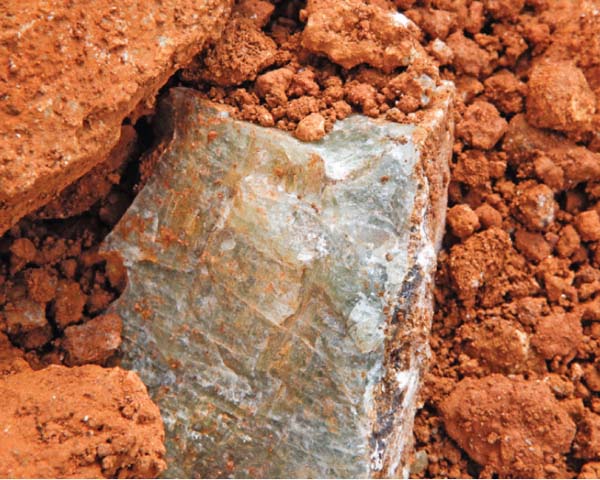Category:Cases - Archive, Legal, Significant Cases

Case number
SC (FR) Application No. 884/1999
Bulankulama and six others v. the Ministry of Industrial Development and seven others – SC (FR) Application No. 884/1999
This case involved a proposed mineral investment agreement for exploration and mining of phosphate in Eppawala. The said agreement between the Sri Lankan Government and Freeport-McMoRan Inc. of USA was to cause many adverse effects, both to the environment and the public. As a result of the potential adversities, the local residents of Eppawala which included cultivators, landowners and also a chief incumbent of a temple ( Petitioners) petitioned to the Supreme Court seeking relief for the violation of their fundamental rights under Articles 12(1), 14(l)(g) and 14(1 )(h) of the Constitution.
What was EFL’s role?
Environmental Foundation Limited (EFL), is a non profit organisation which institutes and assists public interest litigation. In the Eppawala case, EFL supported the Petitioners in respect of scientific and legal researches.
What were the potential adverse effects?
- The area to be explored covered a large area while the contractual agreement had the ability to expand the area furthermore.
- The contract area included Viharas , places of Archaeological value, the area of the Jayaganga, Yoda Ela Scheme, ancient tanks, irrigation channels and the proximity of the Sri Mahabodhi and Ruwanweli Seya within the cultural triangle.
- About 2600 families were likely to be affected.
- Mining rate would increase from 40,000 metric tons of phosphate to 26.1 million metric tons within 30 years; thereby exhausting all proven phosphate reserves. Since phosphate is a non-renewable resource, the agreement didn’t leave any resources for future generations.
- Mining operations would leave large pits creating breeding grounds for mosquitoes.
- Unsafe disposal of Phospho – Gypsum, a by-product of the project, would pollute the environment.
- Discharge of pollutants to the atmosphere.
- Severe disturbances to the ecology of the area.
Key facts from the case
- The Public Trust doctrine explains that, natural resources of the people were held on trust for them by the government. The organs of the state are guardians to whom the people have committed the care and preservation of resources of the people.
- In accordance with Article 126 of the Constitution, the Supreme Court has the sole and exclusive jurisdiction to hear and determine any question in relation to the infringement or imminent infringement by executive or administrative action of any fundamental right.
- Sustainable Development- referring to Stockholm and Rio De Janeiro Declarations, the case discussed that while the state has the right to exploit its own resources, they must make environmental protection an integral part of development and not in isolation in order to achieve sustainable development.
- While the authorities have power given under statute to make decisions taking relevant considerations to approve projects, the proposed agreement was attempting to evade the law. Its implementation was biased in favour of the company. Furthermore the process ousted the public’s involvement. Therefore there was an imminent infringement of fundamental rights under Article 12(1) of the Constitution.
Final Order
The court held that there was an imminent infringement of fundamental rights of the Petitioners guaranteed under Articles 12(1), 14(l)(g) and 14(1 )(h) of the Constitution. Court further ordered the State parties to refrain from entering in to any contract until they had carried out a comprehensive exploration and study of the location, quantity and quality of the phosphate deposit in consultation with the National Academy of Science and the National Science Foundation (NASNSF) and until the project proponent obtains the approval of the Central Environmental Authority (CEA) according to law.
Significance of the case
This landmark case is precedent to setting legal principles on environmental law such as the Public Trust Doctrine, sustainable development and protection of the environment in relation to the breach of fundamental rights. Therefore the case upholds the principles laid down in Stockholm Declaration and Rio De Janeiro Declaration as binding principles. It further highlights the importance of the public’s right to object and that proper legal procedure must be followed when development projects are to be carried out. Thus it can be said the Eppawala case will to date influence policy makers, stakeholders, and state parties to balance environmental protection with the process of development.





